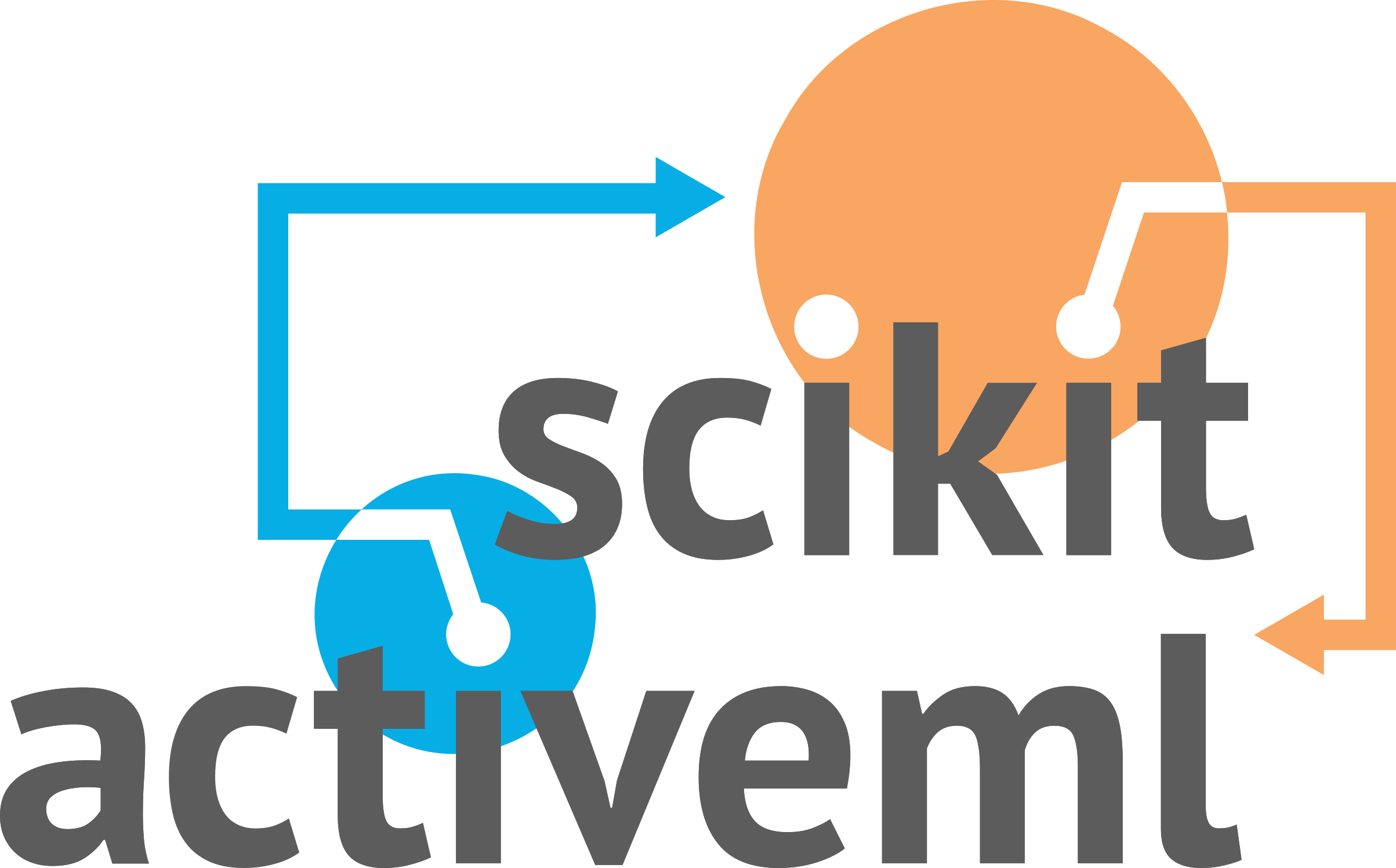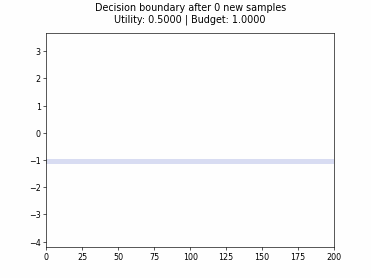Split#
- class skactiveml.stream.Split(budget_manager=None, budget=None, random_state=None)[source]#
Bases:
UncertaintyZliobaiteThe Split query strategy (Split Strategy in [1]) queries labels based on the classifiers uncertainty assessed based on the classifier’s predictions. The sample is queried when the probability of the most likely class exceeds a time-dependent threshold calculated based on the budget, number of observed and acquired samples. It is a hybrid strategy that combines VariableUncertainty with randomly sampling samples with a given probability. See also
budgetmanager.SplitBudgetManager- Parameters:
- budget_managerBudgetManager, default=None
The BudgetManager which models the budgeting constraint used in the stream-based active learning setting. if set to None, SplitBudgetManager will be used by default. The budget manager will be initialized based on the following conditions:
If only a budget is given, the default budget manager is initialized with the given budget.
If only a budget manager is given, use the budget manager.
If both are not given, the default budget manager with the default budget.
If both are given, and the budget differs from budgetmanager.budget, throw a warning and the budget manager is used as is.
- budgetfloat, default=None
Specifies the ratio of samples which are allowed to be sampled, with 0 <= budget <= 1. If budget is None, it is replaced with the default budget 0.1.
- random_stateint or RandomState instance, default=None
Controls the randomness of the estimator.
References
[1]I. Žliobaitė, A. Bifet, B. Pfahringer, and G. Holmes. Active Learning With Drifting Streaming Data. IEEE Trans. Neural Netw. Learn. Syst., 25(1):27–39, 2014
Methods
Get metadata routing of this object.
get_params([deep])Get parameters for this estimator.
query(candidates, clf[, X, y, ...])Determines for which candidate samples labels are to be queried.
set_params(**params)Set the parameters of this estimator.
update(candidates, queried_indices[, ...])Updates the budget manager and the count for seen and queried labels.
- get_metadata_routing()#
Get metadata routing of this object.
Please check User Guide on how the routing mechanism works.
- Returns:
- routingMetadataRequest
A
MetadataRequestencapsulating routing information.
- get_params(deep=True)#
Get parameters for this estimator.
- Parameters:
- deepbool, default=True
If True, will return the parameters for this estimator and contained subobjects that are estimators.
- Returns:
- paramsdict
Parameter names mapped to their values.
- query(candidates, clf, X=None, y=None, sample_weight=None, fit_clf=False, return_utilities=False)#
Determines for which candidate samples labels are to be queried.
The query startegy determines the most useful samples in candidates, which can be acquired within the budgeting constraint specified by budget. Please note that, this method does not change the internal state of the query strategy. To adapt the query strategy to the selected candidates, use update(…).
- Parameters:
- candidates{array-like, sparse matrix} of shape (n_candidates, n_features)
The samples which may be queried. Sparse matrices are accepted only if they are supported by the base query strategy.
- clfskactiveml.base.SkactivemlClassifier
Model implementing the methods fit and predict_proba.
- Xarray-like of shape (n_samples, n_features), default=None
Training data set used to fit the classifier.
- yarray-like of shape (n_samples,)
Labels of the training data set (possibly including unlabeled ones indicated by self.missing_label).
- sample_weightarray-like of shape (n_samples,), default=None
Weights of training samples in X.
- fit_clfbool, default=False
Defines whether the classifier should be fitted on X, y, and sample_weight.
- return_utilitiesbool, default=False
If True, also return the utilities based on the query strategy.
- Returns:
- queried_indicesnp.ndarray of shape (n_queried_indices,)
The indices of samples in candidates whose labels are queried, with 0 <= queried_indices <= n_candidates.
- utilities: np.ndarray of shape (n_candidates,),
The utilities based on the query strategy. Only provided if return_utilities is True.
- set_params(**params)#
Set the parameters of this estimator.
The method works on simple estimators as well as on nested objects (such as
Pipeline). The latter have parameters of the form<component>__<parameter>so that it’s possible to update each component of a nested object.- Parameters:
- **paramsdict
Estimator parameters.
- Returns:
- selfestimator instance
Estimator instance.
- update(candidates, queried_indices, budget_manager_param_dict=None)#
Updates the budget manager and the count for seen and queried labels. This function should be used in conjunction with the query function.
- Parameters:
- candidates{array-like, sparse matrix} of shape (n_candidates, n_features)
The samples which may be queried. Sparse matrices are accepted only if they are supported by the base query strategy.
- queried_indicesnp.ndarray of shape (n_queried_indices,)
The indices of samples in candidates whose labels are queried, with 0 <= queried_indices <= n_candidates.
- budget_manager_param_dictdict, default=None
Optional kwargs for budget_manager.
- Returns:
- selfSingleAnnotatorStreamQueryStrategy
The query strategy returns itself, after it is updated.

